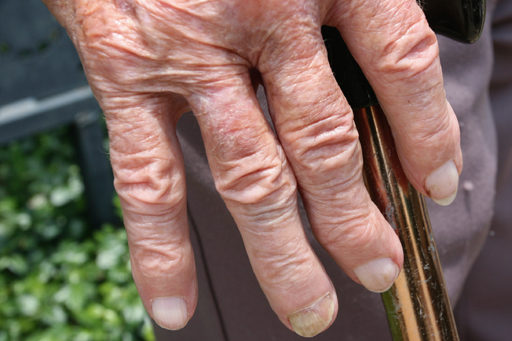The main treatment aim of RA is to reduce joint inflammation and slow down or prevent further damage to enable sufferers to live as full a life as possible. Disease-modifying antirheumatic drugs (DMARDs), usually methotrexate plus at least one other (eg. leflunomide, hydroxychloroquine and sulfasalazine), should be tried as soon as possible after active RA is diagnosed. If DMARDs prove ineffective or have side effects that the patient cannot tolerate, a cytokine modulator such as etanercept or infliximab may be used either in combination with methotrexate or on its own.
It can take weeks or months for DMARD or cytokine modulator therapy to take full effect (although cytokine modulator therapy tends to work a little quicker than DMARD), during which time the patient should be regularly monitored for side effects and efficacy. Short term corticosteroids may also be used to combat inflammation rapidly. Disease-modifying medication should only be continued for as long as the benefits are felt and at the lowest dose possible to prevent flare-ups.

Pain relief – paracetamol, codeine or a compound analgesic, replaced if necessary by an oral NSAID or COX-2 inhibitor at the lowest effective dose for the shortest possible time, plus a PPI – may be used during flare-ups of RA. Surgery is usually only recommended when a joint has been damaged to such an extent that it is no longer functional or has become deformed, or if pain is not reduced despite trying alternative measures. Medication is just part of the management plan for a patient with RA, who will require a multidisciplinary team (ideally through one named contact) to enable life to continue as normally as possible.
Podiatry is particularly important for RA patients. There is little or no evidence supporting long-term use of complementary therapies, such as acupuncture or chiropractic, although some patients may find them effective in the shortterm. Use of such alternative approaches should not affect or replace conventional treatments.
Patients with RA should have a check-up at least once a year – and considerably more often if they experience a flareup or require therapeutic drug monitoring. Blood tests and imaging should be repeated to measure disease progression.
Patients should know how and when to access specialist care rapidly if they experience a flare-up and, as with all longterm conditions, they should be given all of the information and time they require to understand their disease and how it is managed. They should also be involved in treatment decisions.
Reflection exercise
What support is available in your local area for arthritis sufferers and their carers? Make sure you have an up to date list so that you can signpost those who ask or who you feel might benefit.
